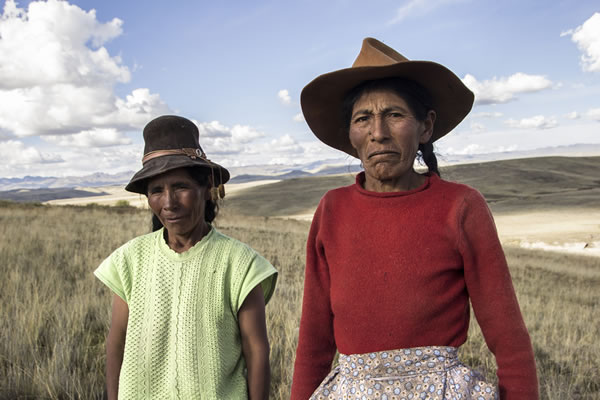The province of Espinar, in the department of Cusco in the southern highlands of Peru, is recognised by the Peruvian Ministry of Health as being a high-risk zone for exposition to heavy metals.
The Kana Indigenous communities of Alto Huarca, Cala Cala, Huisa, Huisa Collana, Alto Huancané and Bajo Huancané are located in the Cañipía and Salado river basins, which provide the communities with their principal source of water for human consumption – drinking, cooking and bathing – as well as for their livestock.
Several studies carried out by the public authorities since 2010 have found that the inhabitants of these communities in Espinar are exposed to heavy metals and other toxic chemicals. It was also established that the communities’ main sources of water are contaminated with mercury, arsenic, lead and other toxic metals, which were found to above the maximum limits for safe human consumption.
However, the State has not yet determined the source of these heavy metals and other chemicals that are present in the communities’ water sources.
The women interviewed by Amnesty International reported that they and their families were suffering from health problems. They revealed a consistent pattern of health issues including headaches, pains in their bones, stomach pains accompanied by diarrhoea, burning and streaming eyes, respiratory problems such as coughs and burning in their throats, and urinary and kidney problems.
Scientific consensus affirms that human exposure to toxic metals such as cadmium, lead, arsenic and mercury causes serious health problems. However, despite this, the state has not provided adequate, specialized medical care, nor has it provided clean drinking water for the affected communities. People in the communities of Espinar still do not have access to a health facility that is able to provide the specialized treatment they need to address their health problems and their exposure to toxic metals.
The communities of Espinar have lodged claims at various times over the past three decades in order to defend their right to health. Although health plans to deal with the situation have been developed, very little progress has been made in implementing them because insufficient budget has been allocated to health services and because of a lack of coordination between the different levels of government.
In Espinar, decades of demands, studies and plans have come to nothing. Meanwhile the, Indigenous communities are still waiting for the state, at all levels, to fulfil its obligation to protect and guarantee their right to health.
